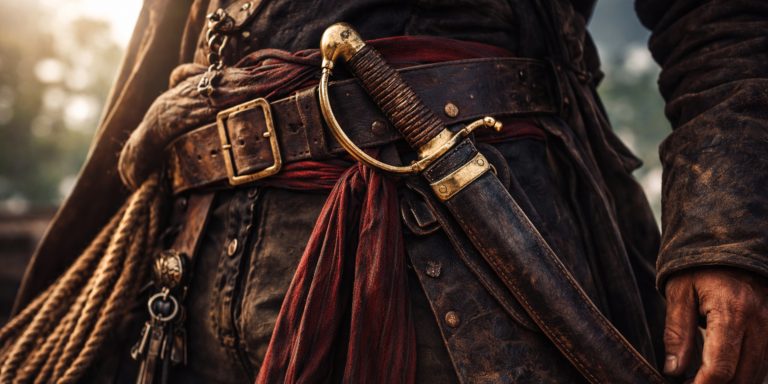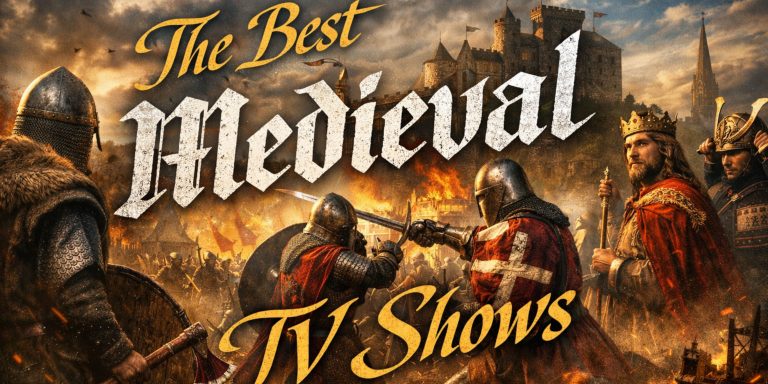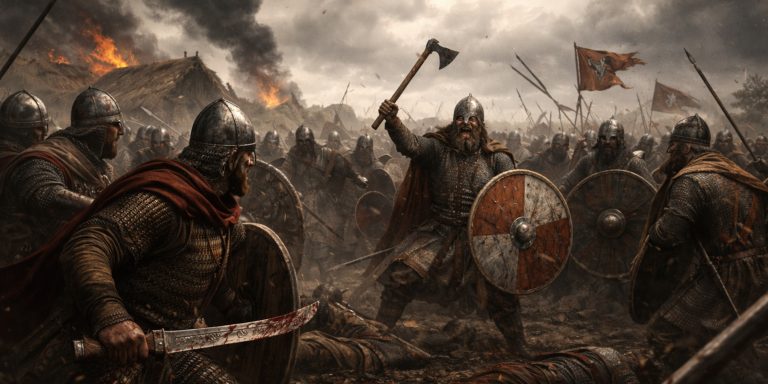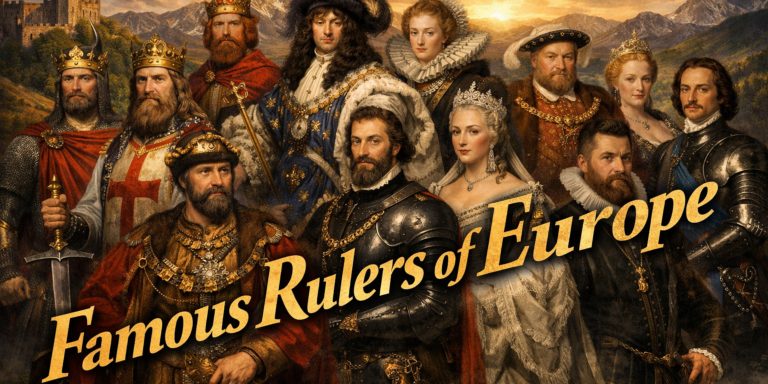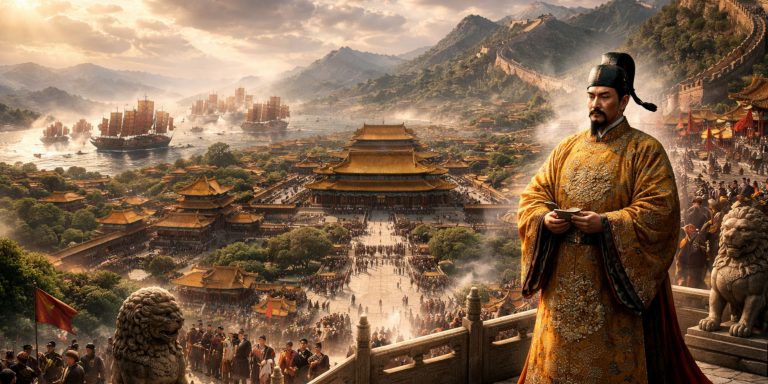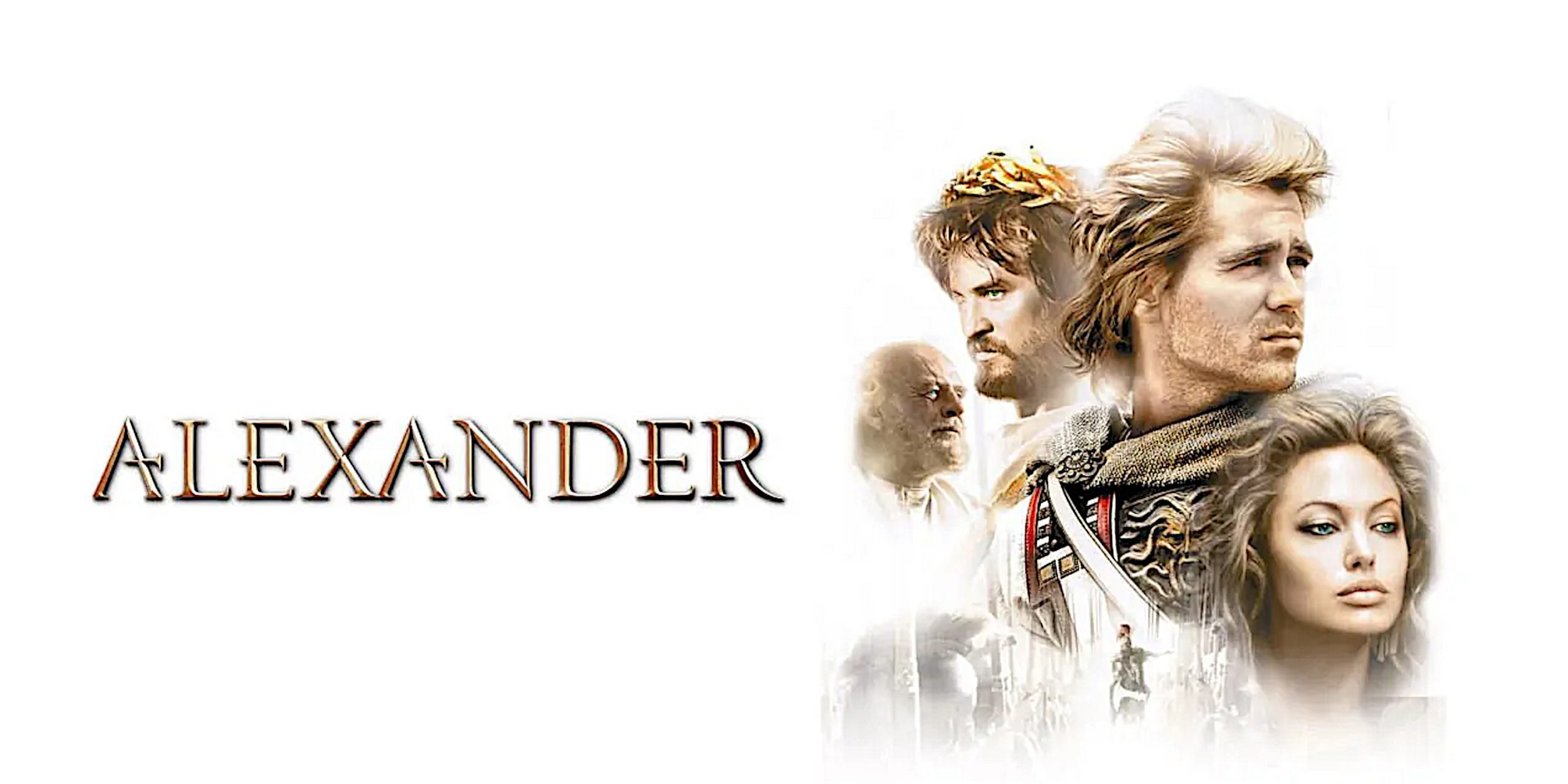
Oliver Stone clearly set out to build a cinematic monument with Alexander, a film that tried to capture the life of one of history’s most intense figures. The ambition was huge, the reaction was mixed, and the arguments have never really stopped. Watching it today feels a bit like sorting through someone’s massive notebook where genius sits next to chaos. I say that with affection, because there is nothing boring about this film, even when it rushes at you with more narration and eyeliner than you were prepared for.
What Alexander (2004) Is Trying To Do
The film moves back and forth through time, following Alexander from his difficult childhood in Macedon to his campaigns across Persia and into India. Instead of a simple road map of conquests, it leans heavily into psychology. Stone clearly wanted us to understand Alexander as a man shaped by pressure, prophecy, trauma, and his own want for something larger than himself.
Some viewers expected a more traditional heroic romp. Instead they got a story obsessed with identity, ambition, and the cost of living at an impossible speed. That is partly why the reception was so split.
The Main Performances
Colin Farrell throws himself into the role with commitment that occasionally fights with the blond wig. There is a rawness to his performance, especially in the heavier scenes with Olympias and Hephaestion.
Angelina Jolie, meanwhile, delivers Olympias as a theatrical, snake adorned force of nature. Historically accurate or not, she gives the film a pulse.
Jared Leto’s Hephaestion anchors the emotional spine of the story. Their bond is shown with an intimacy that was surprisingly bold for a major Hollywood epic in 2004.
Val Kilmer plays Philip II as a man who could charm you at breakfast and terrify you before lunch. He has some of the strongest material in the entire film and makes full use of it.
Visual Style And Battles
The film’s colour palette shifts across regions, which works well, even if it sometimes feels like someone discovered a new filter and got enthusiastic. The battles, particularly Gaugamela, still look impressive. Stone’s constant aerial views and sweeping shots try to replicate the scale of ancient warfare in a way that still feels ambitious now.
The India campaign stands out for its sheer intensity. The elephants crashing through Macedonian lines remain one of the film’s most memorable set pieces, partly because Stone really leaned into the nightmare quality of the moment.
Historical Accuracy, Or Something Close To It
This is where discussion gets loud. The film hits the broad strokes of Alexander’s life but bends certain events or timelines to make the drama work.
Examples include:
- The tension between Philip, Olympias, and Alexander, which is heightened for emotional effect.
- The political scenes in Babylon, which gather several real disputes into one place.
- Some characters appear earlier or later than they did historically.
None of this is shocking for a historical epic. Stone was aiming for emotional truth rather than a museum guide, and the film is upfront about that.
The Many Cuts Of Alexander
If you ever thought one version of a film was enough, Oliver Stone disagreed in the strongest possible way. Over the years he released:
- The original theatrical cut
- The Director’s Cut
- The Final Cut
- The Ultimate Cut
Each version changes pacing, structure, and emotional emphasis. The later cuts tend to be smoother, with more context and less of the abrupt jumps that confused early audiences. Watching the Ultimate Cut feels closest to Stone’s full vision, especially if you like stories that take their time.
Themes That Run Through The Film
The ideas sitting beneath the battles are surprisingly modern.
- Leadership under crushing expectation
- Identity shaped by parents, culture, and ambition
- The weight of myth on a real human being
- Love and loyalty in environments built on violence
- The thin line between visionary and tyrant
For all its scale, the film is most interesting when it digs into Alexander’s contradictions. You sense Stone wrestling with admiration and discomfort at the same time.
Why The Film Struggled At Release
The marketing suggested a straightforward ancient action epic. The reality was a psychological character study wrapped in surreal dream sequences, political intrigue, and long philosophical speeches. Some critics bounced right off it. Audiences did too, partly because it tried to do everything at once.
Yet the film slowly built a cult following. Casual viewers softened toward it, and history enthusiasts found a lot to unpack. It became one of those films people revisit once every few years, usually with a different opinion each time.
The Legacy Of Alexander 2004
For all of its flaws, the film left a mark. Few Hollywood epics have the nerve to be this personal. Even fewer explore ancient sexuality, emotional vulnerability, and political pressure with such commitment.
It sits in that strange place where a film can be messy and brilliant at the same time. Whenever you talk to someone about Alexander, there is always one scene they will defend with absolute passion. That tells you the film did something right.
Where To Watch Today
The Ultimate Cut appears most often on streaming platforms and tends to be the version recommended by people who have thought about this film more than is strictly healthy. It is long, yes, but Alexander’s story was never going to fit neatly into a tight two hour runtime anyway.
The Seven Swords Takeaway
Alexander 2004 is an ambitious, uneven, fascinating piece of cinema that rewards rewatching. You can feel Oliver Stone pushing hard to say something meaningful about power and purpose. Even when the film stumbles, it does so while trying to reach something bigger.
If you go in with patience and a sense of curiosity, you will find moments that stay with you long after the credits. It is a flawed epic, but the kind that earns your respect as you sit with it.
Watch the Trailer:

